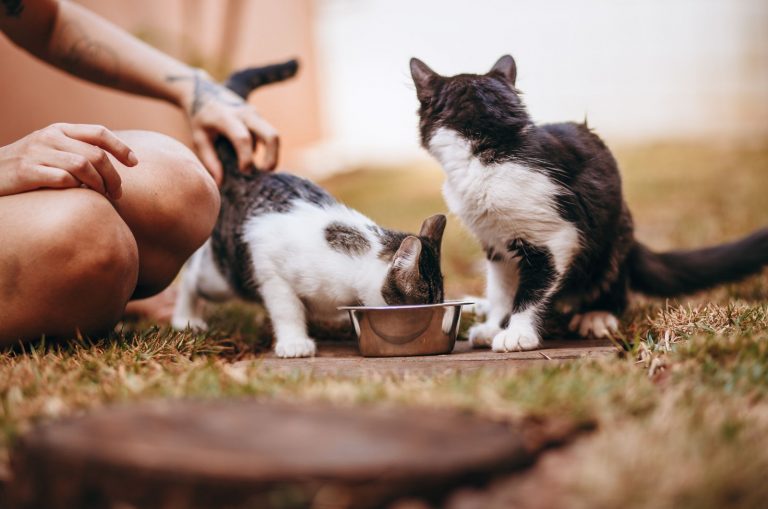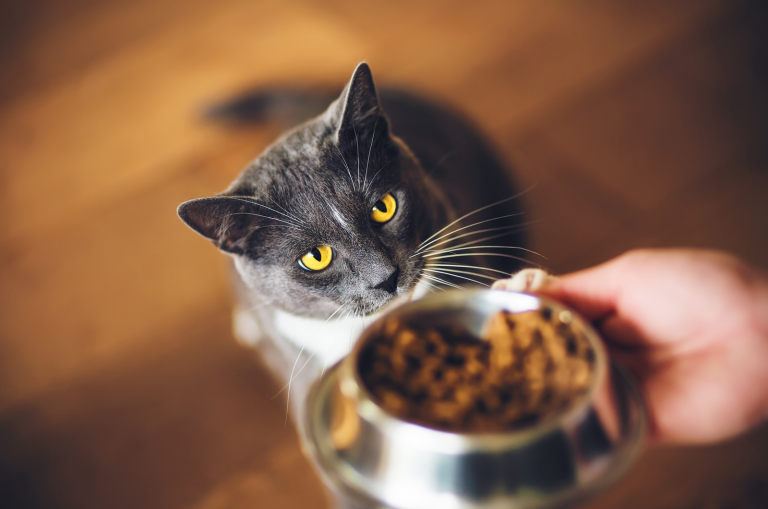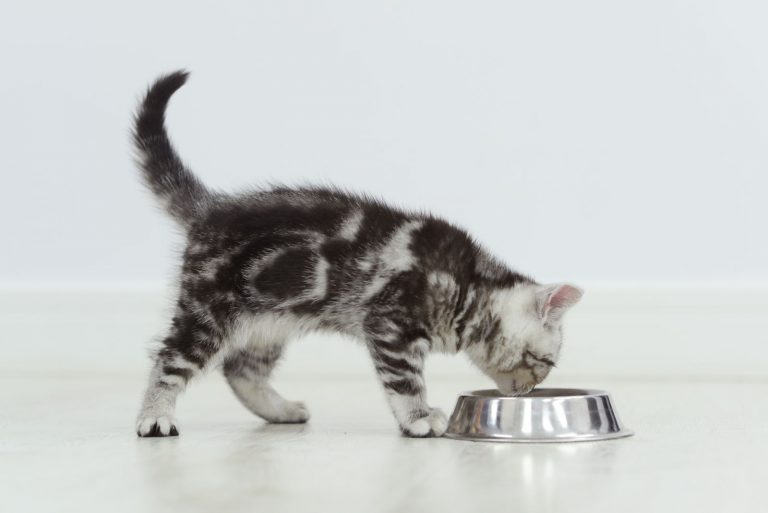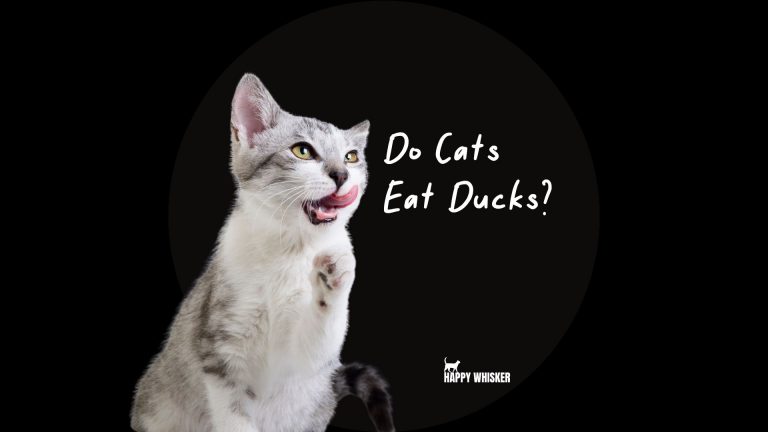How Heavy Should My Cat Be: Weight Guide
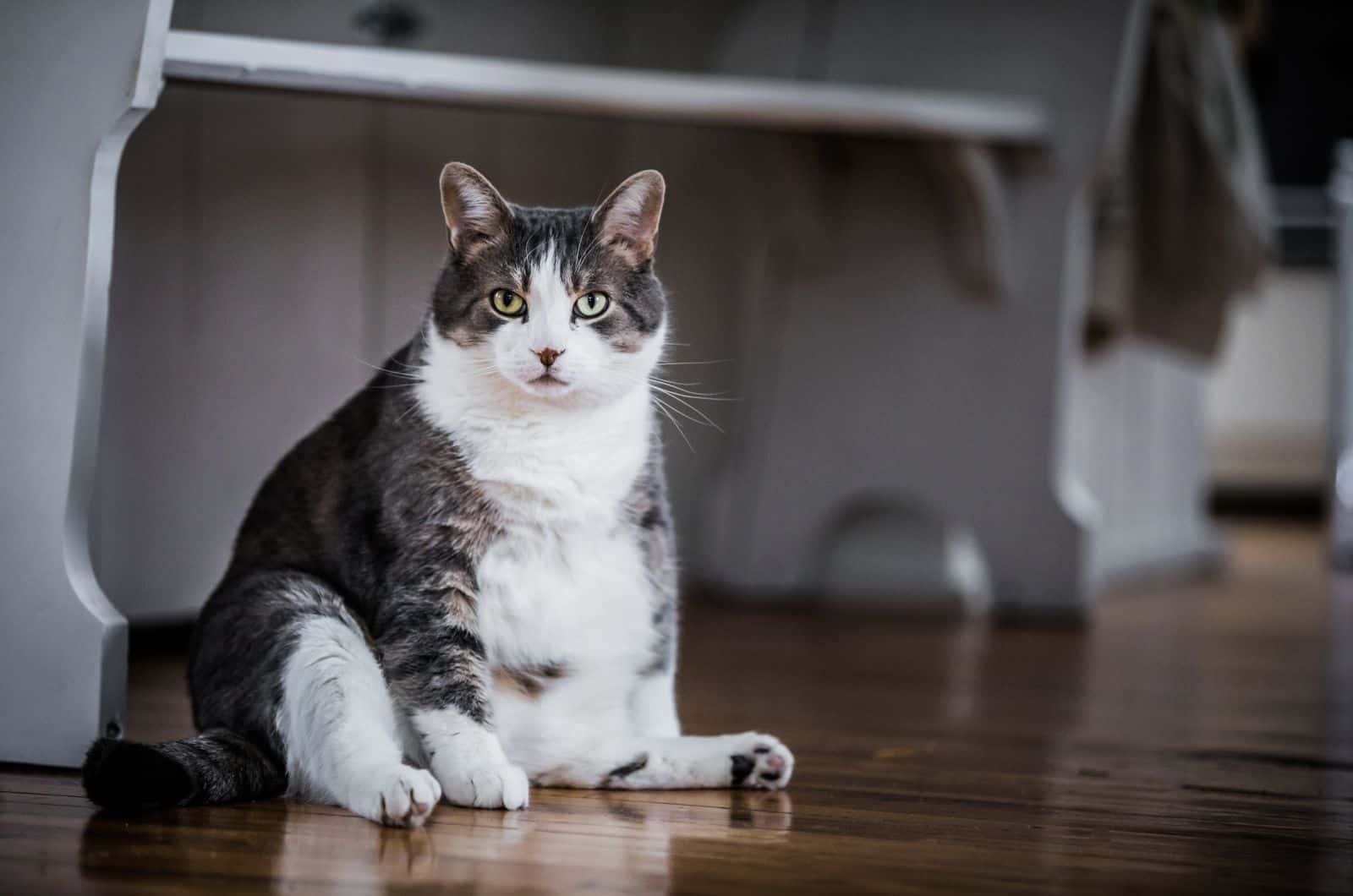
This article is for all those pet owners who want to pay special attention to their furry friends’ health, to protect them from the dangers of obesity and keep them in good shape.
A healthy weight is essential for a cat’s health and wellbeing. So, if you want to improve your cat’s life, then you should know the answer to our main question – how heavy should my cat be?
In order to keep your cat at the right weight, we have to determine what a cat’s healthy weight is. The average weight of a domestic cat is 10 pounds, which is around 4.5 kg.
However, it is very important that you should seek out information about your specific cat breed as this varies from one animal to another.
So, if you want to learn more and keep your cat in top condition then read on and find out everything there is to know about your cat’s weight.
How Heavy Should My Cat Be?
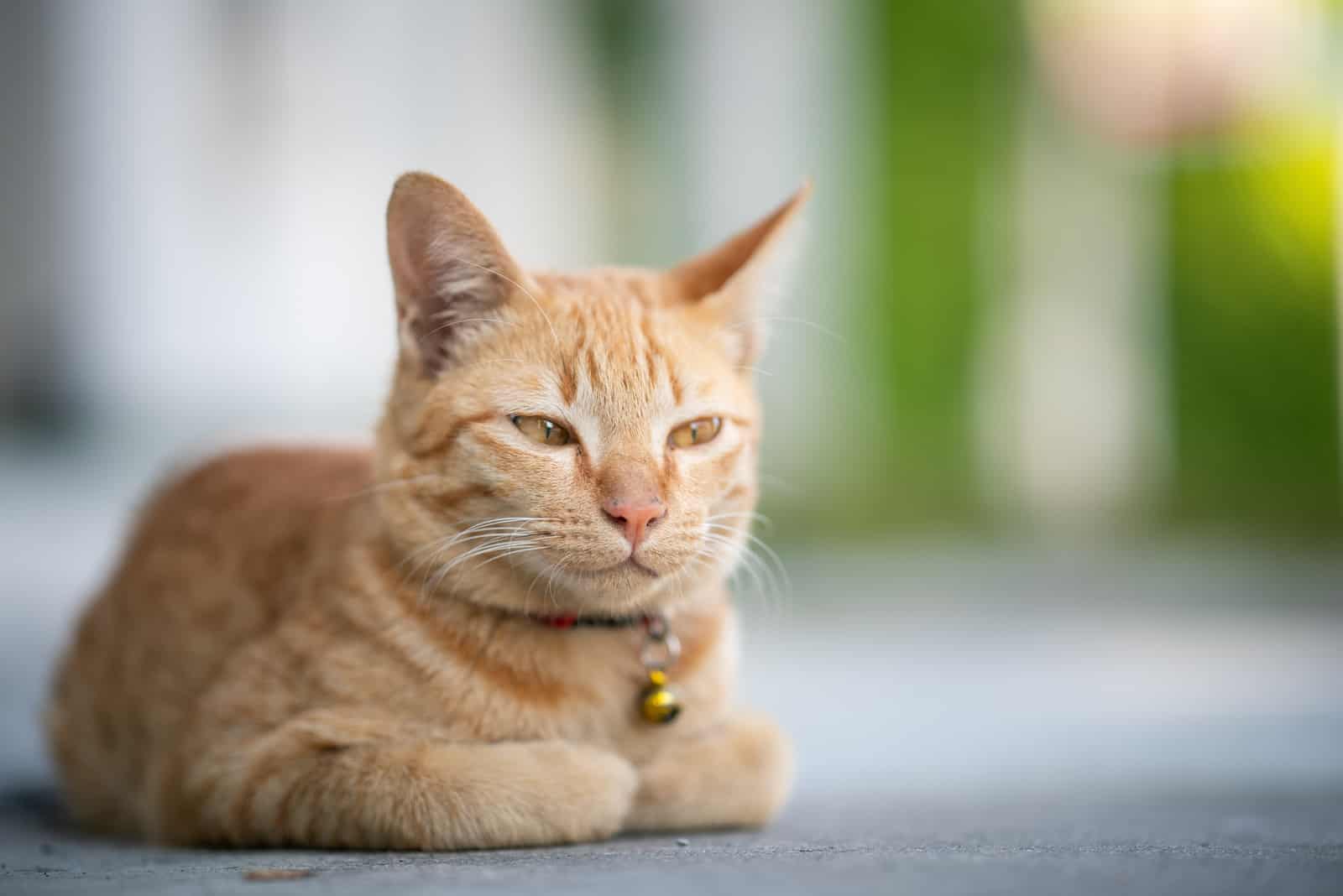
A cat’s health mostly depends on the cat’s lifestyle and its owners’ attitude. If cat owners pay special attention to their cats and their health, they’ll probably have a healthy cat. If not, it may face many problems.
One of the main problems that cats face is their weight, especially nowadays when it is so easy for cat parents to spoil their cats with treats or neglect to choose healthy food for them.
Cats that weigh more or less than their ideal weight may face serious health issues.
Cat owners should pay special attention when feeding their furry friends or they could end up with hefty vet bills, or even worse, their pets could face chronic disease or reduced life expectancy.
So, if you want to be a responsible cat parent, read on and ask yourself how heavy should my cat be?
Average Cat Weight
The ideal cat weight is not the same for every cat breed, however, the average weight of a domestic cat is around 10 pounds (4.5 kg).
If you are wondering what the ideal weight is for your feline friend, then it is best to check the specific breed info and see how heavy your cat should be.
For example, some larger cat breeds such as Maine Coons should be heavier than average domestic cats, weighing around 20-25 pounds, while other breeds such as Siamese cats may weigh between 8 and 15 pounds.
Therefore, it all depends on the particular cat breed, and whether it is a male or a female cat, as male cats are typically larger than females.
In order to maintain the perfect weight for your cat, you should learn more about the specific cat breed that you have.
It’s important to know how much they should eat, how often, if there is a special food you should use, and how much activity your cat should be doing.
In order to determine a cat’s ideal weight, most professional veterinarians use the Body Condition Score (BCS), a formula developed by Purina to track a cat’s weight on a scale from 1-9, where 1 refers to critically underweight, and 9 refers to obesity.
A cat with an ideal weight should have an hourglass figure when looking down from above. The ribs should not be visible or easily felt, as this may mean that the cat weighs less than she should.
In order to understand it better, in the following text, you’ll find five different categories of cat’s weight range, so read them carefully and find out what you should pay attention to the most.
Critically Underweight
If you see a critically underweight cat, you can be sure that the cat requires immediate veterinary attention and probably will require special treatment.
Critically underweight cats are often stray cats seen on the street, or cats that have been neglected.
It’s very easy to see that they are malnourished as they have visible ribs, as well as other prominent bones such as the tail because there’s no fat that usually covers the cat’s tail.
Such cats are in seriously bad health, and usually they don’t have much energy or strength to enable them to hunt or groom themselves.
Also, critically underweight stray cats will often bypass any fear of people, and instead run towards them, begging for the food they so desperately need.
If you notice a cat in this condition, it’s very important to take her to the vet as soon as possible, as it may have various health issues due to starving.
These cats should be given small but frequent meals, and avoid overfeeding as it may cause even more problems for the cat’s undernourished system.
Underweight
Underweight cats are in better condition than critically underweight cats, but it’s still not very healthy.
They will also require special care and a vet-check to rule out certain health problems that can develop due to being underweight.
Underweight cats are easily noticed because you can see their ribs, and their tummy is sucked in. This is most commonly seen in stray cats.
The main difference between underweight cats and critically underweight cats is that they have more energy, therefore they’re able to hunt the prey to survive, or to play, or groom themselves.
Related: My Cat Is So Skinny I Can Feel Her Bones – What Should I Do?
Ideal Weight
Healthy cats should have an ideal weight, and as previously mentioned, average domestic cats should weigh around 10 pounds or 4,5 kg.
This, of course, depends on the specific cat breed. Therefore, the easiest way to recognize the cat’s ideal weight is that your feline should have an hourglass body shape when looking down on it.
When petting the cat, the ribs may be felt, but they should not be visible at all, and their tummy isn’t sucked in as in underweight cats.
A cat with ideal weight shouldn’t have issues related to its weight, so such cats are normally very energetic.
Their fur is shiny because they have strength for grooming, and they’re extremely playful. If you notice certain changes in the cat’s behavior then you should seek a vet-check to make sure that everything is okay.
Most importantly, whether a cat will have a healthy weight or not depends mostly on the cat’s owner and their lifestyle.
Overweight
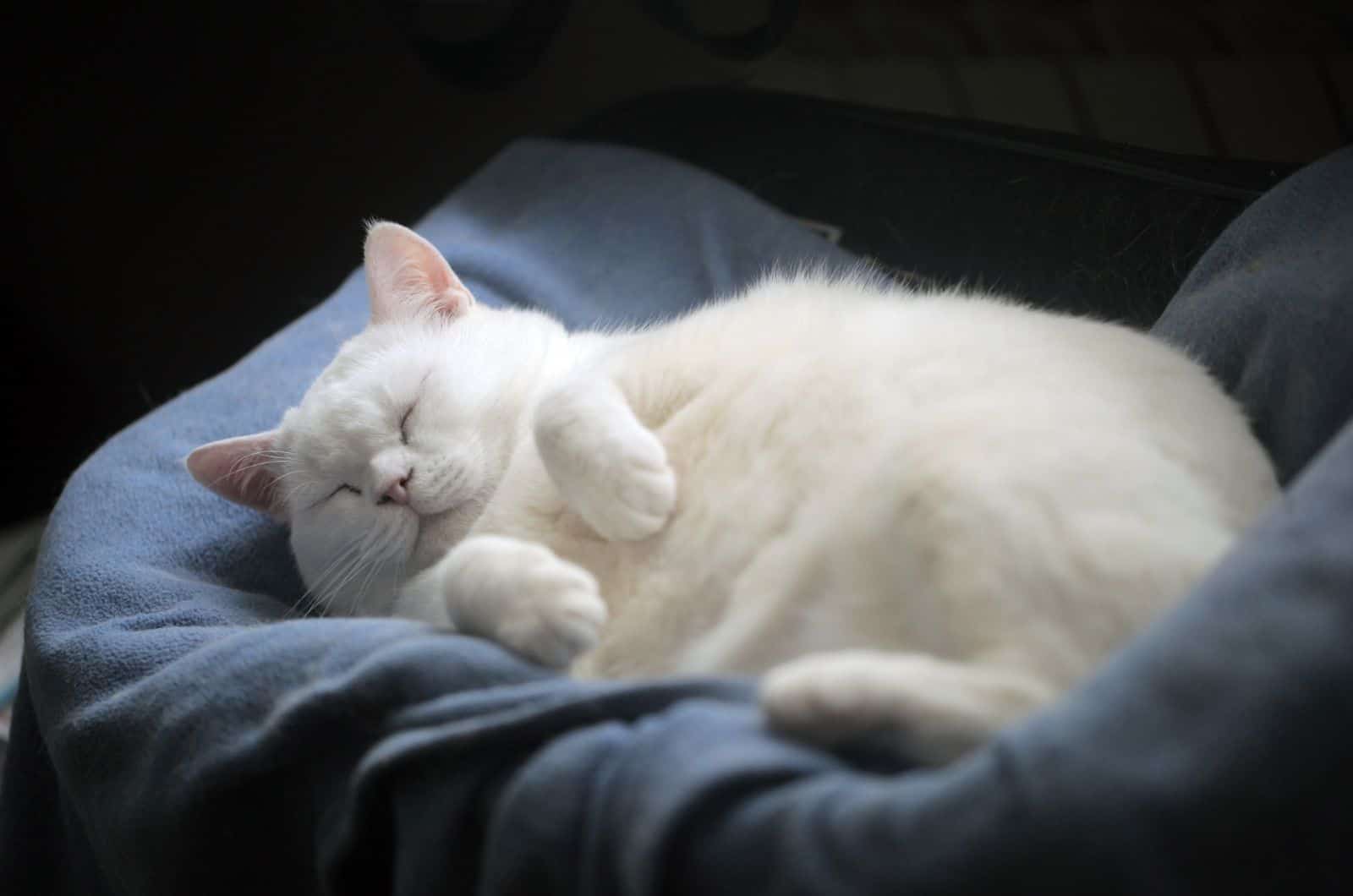
Overweight cats are a huge problem, just as much as underweight cats. This problem is present in many homes all over America as a result of cat parents spoiling their furbabies!
Often, cat owners think that they are providing their felines with loving attention and making sure they are never hungry.
Therefore, they increase the amount of meals that a cat has, give them lots of treats, and decrease their activity levels. This usually leads to the cat gaining extra weight.
Overweight cats aren’t necessarily visibly fat, but when petting them you will need to press a bit harder if you want to feel the cat’s ribs.
Moreover the fat may be felt all around the cat’s body, and since the cat is overweight, it doesn’t have an hourglass body shape anymore.
Cats that weigh more than they should can develop certain health issues which is why they need a proper feeding schedule and frequent activities to help them lose those extra ounces.
Obese
Obese cats are extremely fat cats that require special and immediate attention – just like the critically underweight cats.
A large amount of extra weight may seriously influence the cat’s lifestyle and will be detrimental to the cat’s general health.
The extra pounds may cause serious disease and health issues such as kidney disease, liver disease, diabetes, etc. All of these health problems will affect the cat’s lifespan.
As well as health problems, an obese cat will have difficulties with her daily activities. It will usually be very difficult for her to move around as she may develop joint issues due to weight gain. It can also cause the cat to have breathing issues.
Obese cats require special veterinary checks on a regular basis and a special diet to help them lose weight and get back to a normal, healthy weight.
The Benefits Of A Healthy Weight In Cats
If your feline friend has a healthy weight, there are a lot of benefits that you can both enjoy.
First of all a healthy weight often means a healthy cat, and when the cat’s body condition is good, it is happier and this makes for a better pet.
Moreover, weight problems may lead to different health issues that may be very serious; a healthy weight also reduces the risk of possible heart disease, kidney or liver problems, breathing problems, and similar issues.
Besides that, your cat will be happy, energetic and playful, and able to run, climb, and jump without any problems. Your feline friend will look healthy because she’ll be able to groom herself, making your job easier so everyone’s happy.
In order to keep your furry companion healthy, happy, and satisfied, you should introduce your feline to a regular feeding routine.
This means that you should provide your cat with a meal every day at the same time, and don’t forget to include plenty of playtime and other activities to keep the cat both mentally and physically active.
What To Do If Your Cat Is Underweight?
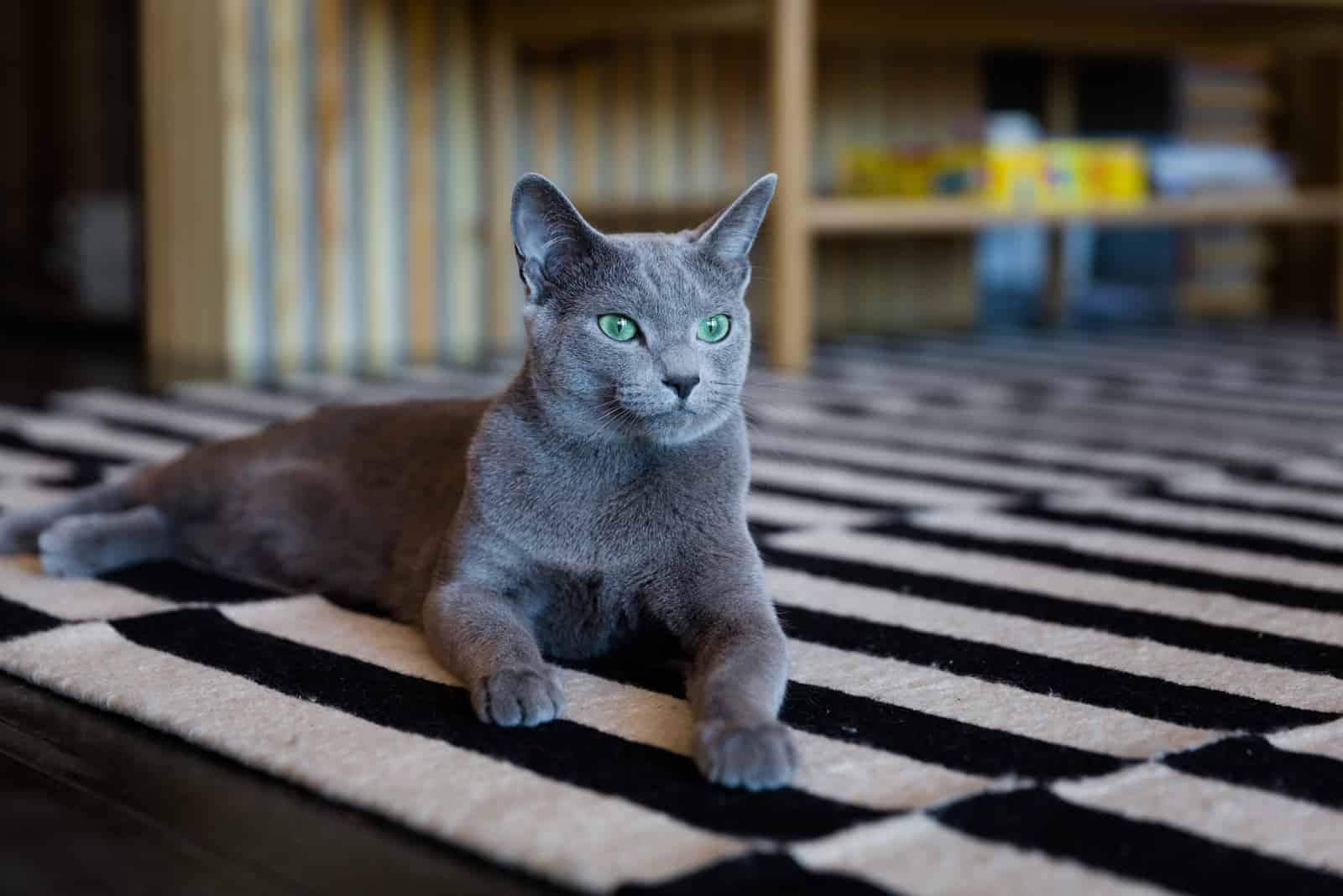
I already mentioned that underweight cats need a vet-check and a proper diet.
Losing a lot of weight may be a sign of serious health issues, so it’s very important to take an underweight cat to the vet for a check-up. If the cat’s weight loss is a result of health problems, the vet will prescribe the proper treatment for it.
The vet may recommend a special feeding schedule or some homemade food for gaining weight. This will usually include top-quality food and ingredients that can help with gaining weight in a healthy and balanced way.
Underweight cats shouldn’t be overfed suddenly, but given more frequent small meals. It is important to introduce food gradually and follow the advice given to you by the veterinarian.
The main ingredient in a cat’s diet should be animal protein, so in order to help your cat gain body weight, you should choose a cat food based on meat and real protein.
Other ingredients that should be in the cat food include a decent amount of healthy fat and a lower amount of carbohydrates.
Possible Health Problems For Underweight Cats
We know that underweight cats have a higher risk of developing certain health problems, and that some medical conditions can actually cause a cat to lose weight. Some of the problems that are linked to being underweight include:
• Stress – one of a number of traumatized cat symptoms which may lead to loss of appetite.
• Dental disease – a cat experiencing pain while eating may stop eating completely.
• Digestive issues – a cat may stop eating or absorbing food because of an inability to digest the food properly.
• Kidney disease – weight loss is an early sign for this disease.
• Hepatic lipidosis – fatty liver syndrome.
What To Do If Your Cat Is Overweight?
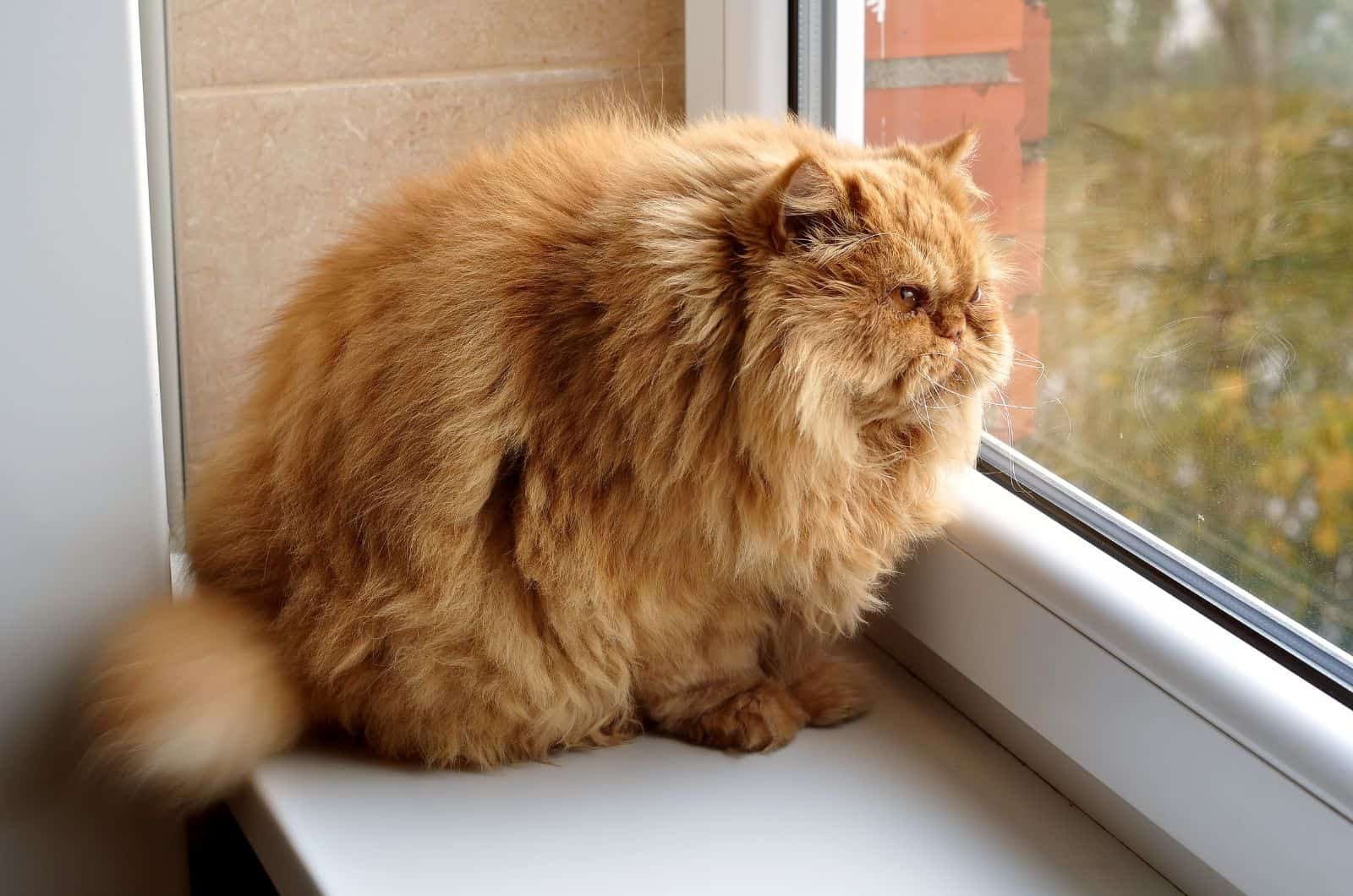
For cats, being overweight is just as serious as being underweight. It can badly affect the cat’s everyday life and it may even lead to certain health problems.
Overweight cats too, require special care. First of all they should be taken to the vet for a check-up. The vet will treat any medical issues and give you advice on taking care of your cat.
A proper feeding schedule and a special diet with additional supplements, such as weight management food, are very important when it comes to maintaining a healthy weight for your cat.
Before we explore how you can help your cat lose weight, let’s see how obesity can affect a cat’s health.
Possible Health Problems Of Overweight Cats
Cats with excess weight may develop certain health problems. Some of these problems can even be life-threatening, which is why it’s highly important to take your cat to regular check-ups and keep your feline fit. Possible health issues include::
• Fatty-liver disease – inability to process blood; this can be a life-threatening condition.
• Urinary bladder stones – mineral formations that form in the urinary bladder.
• Dyspnea – respiratory problems.
• Osteoarthritis – degenerative condition of the joints.
• Diabetes – inability to balance blood sugar due to low production of insulin.
• Heart disease – abnormality of the heart, may lead to heart failure.
• Hypertension – high blood pressure.
• Hip dysplasia – malformation of the hip joint.
• Pancreatitis – swelling of the pancreas.
How To Help A Cat Lose Weight?
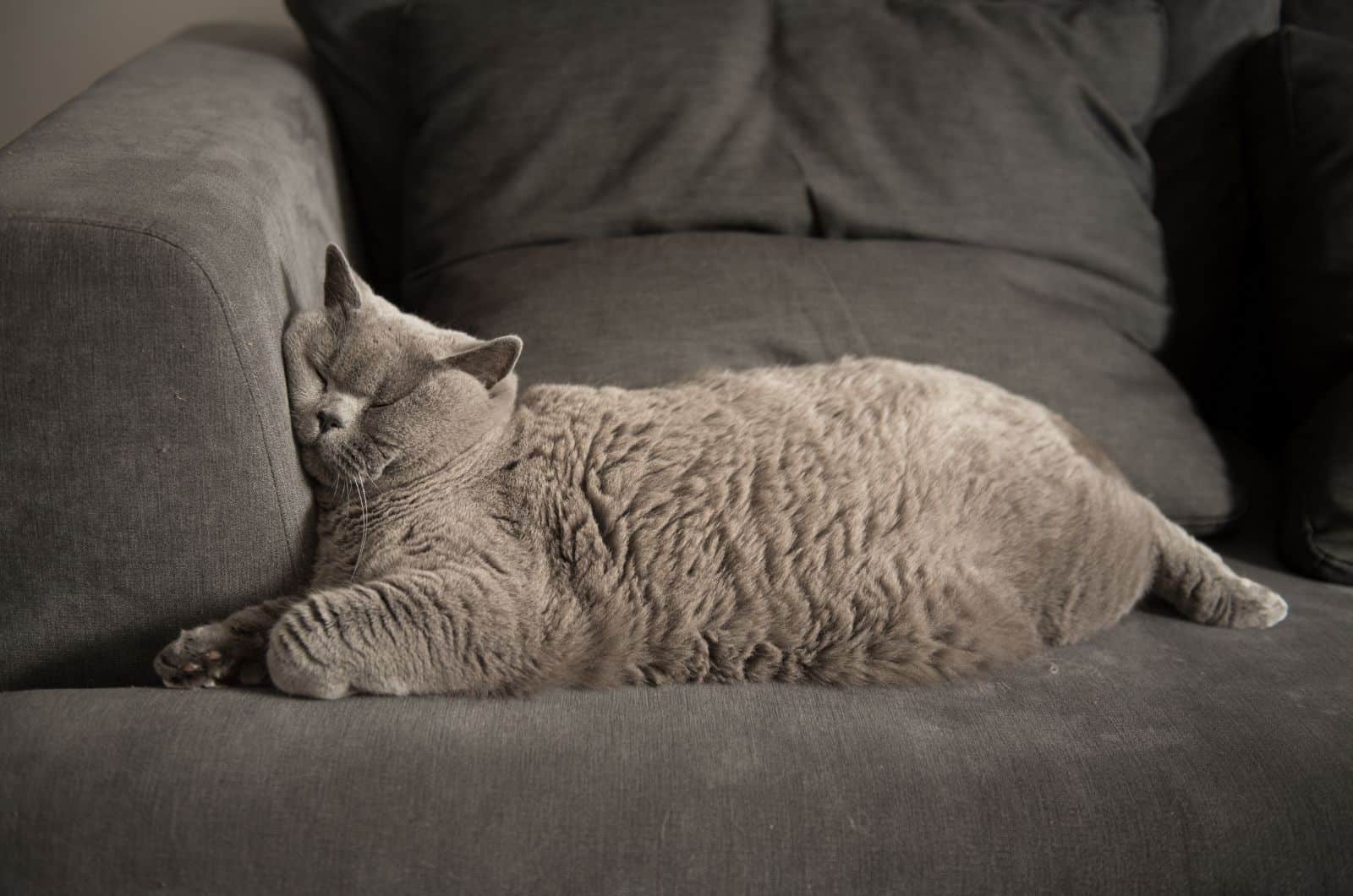
If you want to get your cat back on track, here are some tips on how to help your cat lose weight:
• Take the cat to regular vet-checks for tailored advice.
• Don’t feed the cat all the time, instead create a proper feeding schedule and provide your feline with small meals, a few times a day.
• Make your feline work for food (and burn calories) by using food puzzles.
• Use canned food instead of dry food.
• Don’t use kitten food for adult cats as it contains more calories.
• Buy high-quality cat food based on animal protein that has a low carbohydrate content.
• Avoid ingredients such as grains, corn, and soy ingredients.
• Provide your cat with lots of playtime each day to keep her active and to burn calories. Look for new and interesting toys that will get your cat active and keep it entertained.
• You can even buy your cat a running wheel to burn off some extra calories!
Final Thoughts
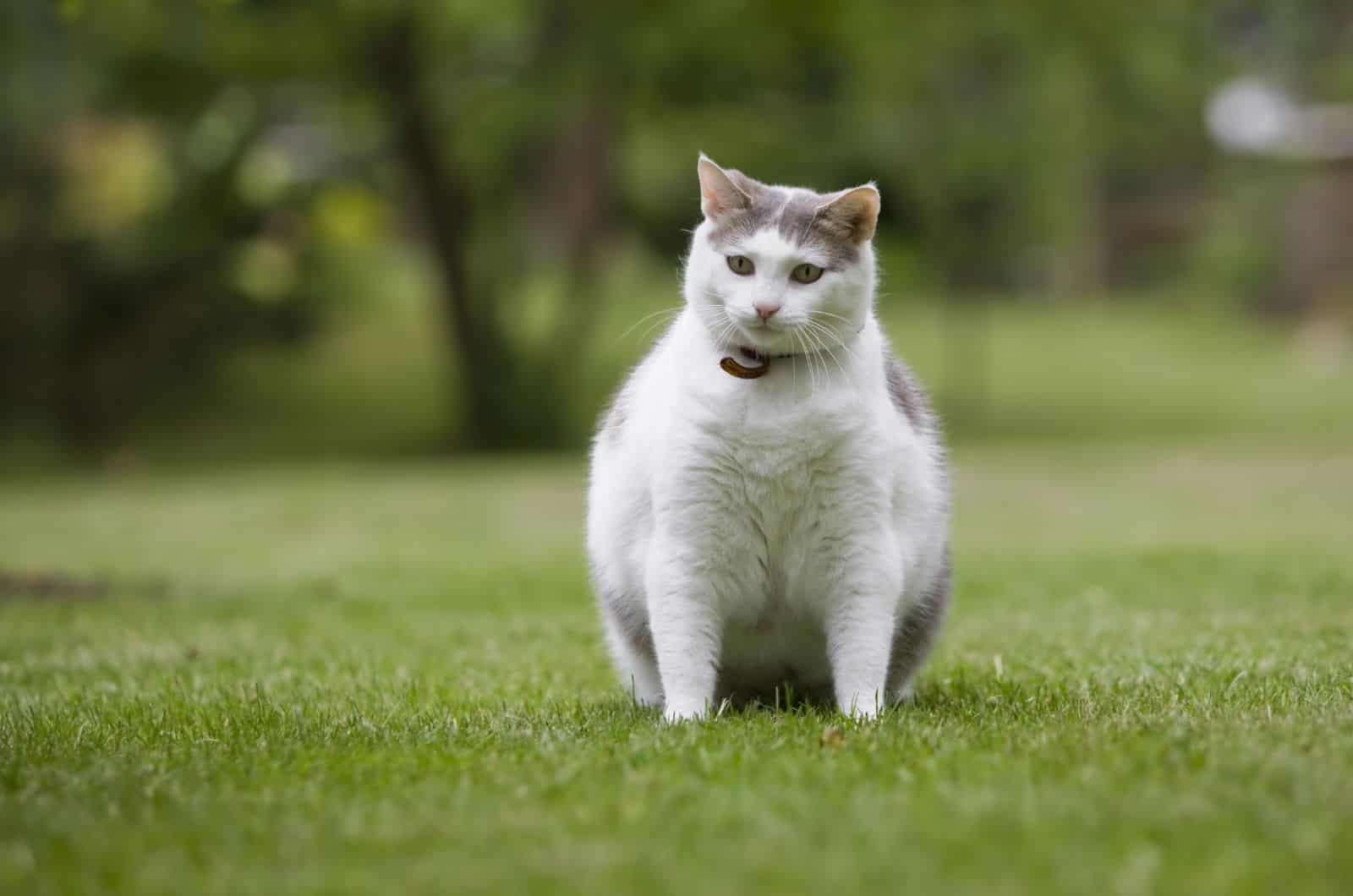
Before you can answer the question how heavy should my cat be, first you need to know about the cat breed that you have and what the average weight for your type of cat should be. Your vet can help you if you are unsure.
Every cat needs to differentiate; different cat breeds require different things. Some cats are calm and don’t require a lot of activities, while others require a lot of physical activity in order to maintain a healthy body condition.
It is always best to feed your feline top-quality cat food that will provide her with all the necessary nutrients. Mealtimes are highly important; you shouldn’t wait until your cat is starving, nor should you overfeed your cat.
Simply create a feeding schedule approved by your vet, and then stick to it (no matter how cute your cat is when she begs for food!).
Don’t forget to keep your feline physically active with playtime and toys. If you follow this advice, your cat should be able to maintain an ideal weight and won’t be overweight or underweight.
When a cat has a healthy weight, her overall health is kept in good condition and she’s happy! And a happy cat means a happy owner!
Related Content
• How Long Can A Cat Go Without Food? What You Need To Know
• How Much Should A 10 Week Old Kitten Eat? An Owner’s Guide
• How Long Does It Take A Cat To Digest Food? All You Need To Know

